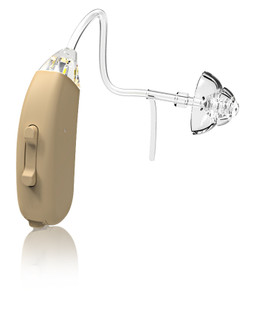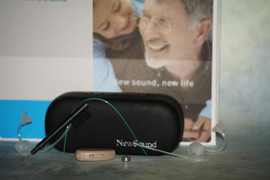The Connection between Tinnitus and Hearing Loss: What You Need to Know
Posted by DR Paul on Oct 18, 2023
Have you ever experienced ringing or buzzing in your ears? If so, you may have tinnitus. Tinnitus is a common condition that affects millions of people of all ages. In fact, 50 million Americans suffer from tinnitus. Some people experience tinnitus along with hearing loss, and there is a connection between the two. In this blog post, we will explore the relationship between tinnitus and hearing loss and what you need to know.
Understanding Tinnitus
Tinnitus is a condition that causes a ringing or buzzing sound in the ears, and it can be constant or come and go. It may occur in one ear or both and can be heard as a high-pitched sound or a low hum. Tinnitus can be caused by a variety of factors including exposure to loud noise, ear infections, and hearing loss. One of the most common causes of tinnitus is age-related hearing loss.
Connection between Tinnitus and Hearing Loss
Tinnitus and hearing loss are often connected, and in many cases, hearing loss can cause tinnitus. When the nerves in the ear are damaged, they can send false signals to the brain, which can result in tinnitus. Similarly, exposure to loud noise can damage the hair cells in the inner ear, leading to hearing loss and tinnitus. In some cases, treating hearing loss can also alleviate tinnitus symptoms.
Treatments for Tinnitus
Treating tinnitus can be challenging, and there is no one solution that works for everyone. However, certain treatments can help reduce the symptoms of tinnitus. These include hearing aids, sound therapy, and behavioral therapies. By wearing hearing aids, individuals with hearing loss can reduce the strain on their ears and minimize the occurrence of tinnitus. Sound therapy can also help by masking the sound of tinnitus and providing relief. Behavioral therapies such as meditation and relaxation techniques can help reduce stress, which can make tinnitus worse.
Tinnitus Prevention
While tinnitus may not always be preventable, there are steps you can take to protect your hearing and reduce the risk of developing tinnitus. These include avoiding exposure to loud noise, wearing earplugs when working in noisy environments, taking breaks from loud noise, and using headphones or earplugs when listening to music at high volumes. It's also important to have your hearing checked regularly, especially as you age.
Seeking Help for Tinnitus
If you are experiencing tinnitus or hearing loss, it's essential to seek help from an audiologist or hearing healthcare professional. They can perform tests to determine the cause and severity of your condition and recommend appropriate treatments. Remember that tinnitus is not something you have to live with, and there are many options available to help manage the symptoms.
Conclusion:
In conclusion, tinnitus and hearing loss are often connected, and it's important to understand the relationship between the two. Tinnitus can be caused by a variety of factors, including hearing loss, exposure to loud noise, and ear infections. If you are experiencing tinnitus or hearing loss, it's important to seek help from a hearing healthcare professional who can help determine the cause and recommend appropriate treatments. By taking steps to protect your hearing and seeking help when needed, you can reduce the risk of developing tinnitus and improve your overall hearing health.










